CNN’s Clarissa Ward and team held captive by militia in Darfur
CNN’s Clarissa Ward has revealed that she and her team were held captive by a militia for two days while reporting in Darfur.
The veteran correspondent, 44, traveled to Sudan to report on the civil war which has led to a massive humanitarian crisis, with another 26 million people facing famine.
But just hours after arriving in North Darfur, Ward and her team were detained by a militia led by a man who went by “the general,” as she wrote for CNN.
Ward, cameraman Scott McWhinnie and producer Brent Swails were in a vehicle when they were surrounded by armed fighters who violently shouted at them not to film the scene.
As Ward’s producer Brent Swails tried to defuse the situation, the general took out his rifle and fired a bullet, apparently targeting a bird.
CNN’s Clarissa Ward has revealed that she and her team were held captive by a militia for two days while reporting in Darfur. She is pictured laughing awkwardly with her cameraman Scott McWhinnie and one of their captors after being told they would be released.
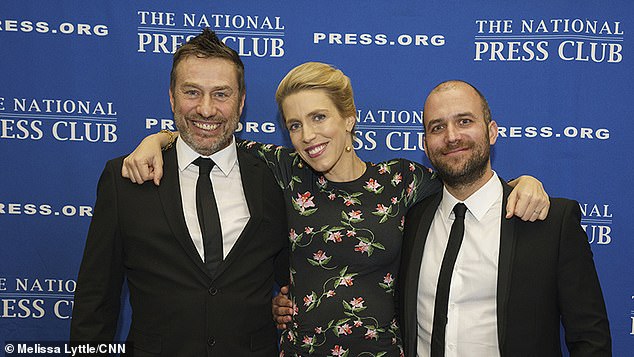
Cameraman McWhinnie, Ward and producer Brent Swails were held captive for 48 hours
“I was relieved that the gun was not pointed at us, but still disturbed by his erratic behavior,” Ward wrote of the terrifying experience.
Ward was invited to the town of Tawila by the SLM-AW – a faction of the Sudan Liberation Movement, a neutral party in the civil war.
Located just 52 miles from the front lines of the war, in the town of El Fasher, Tawila has become a haven for those fleeing the carnage.
However, when she and her team reached the agreed meeting point in the town of Aby Gamra, they were met by the rival militia and two trucks carrying rocket-propelled grenades and machine guns.
The team’s driver was taken to the city jail in chains and the crew was interrogated individually for three hours in a “small room with no windows.”
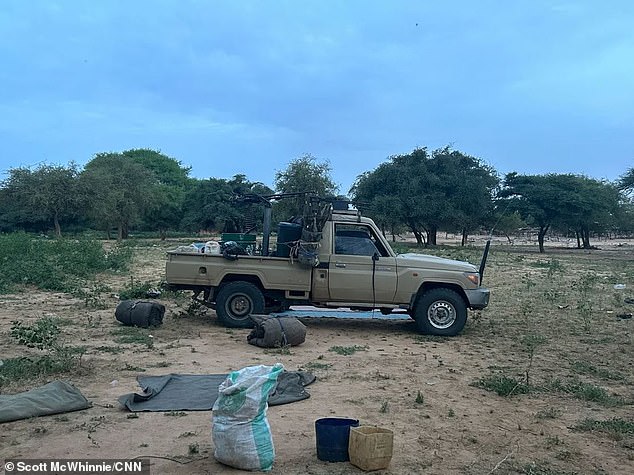
The crew was met by the rival militia and two trucks carrying rocket-propelled grenades and machine guns
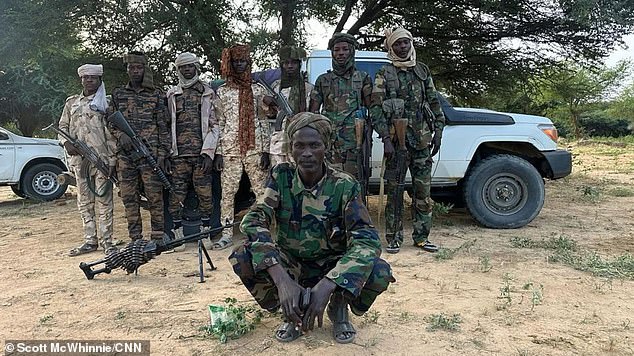
The crew were then held for two days under the supervision of armed men, some as young as 14 years old
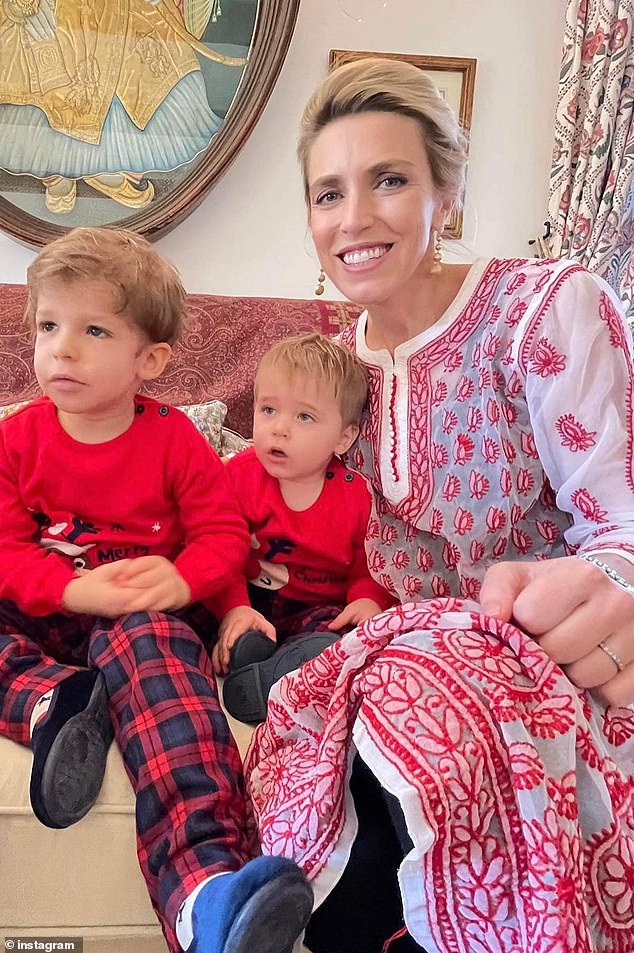
As the general fired his gun again while shouting at the crew, Ward pleaded with him, saying, “I am a mother. I have three little boys.” She is seen with her sons
After the interrogation, Ward and her team were bundled into their vehicle and assigned to follow a convoy heading deeper into Darfur.
As the general fired his gun again while shouting at the crew, Ward pleaded with him, saying, “I am a mother. I have three little boys.”
A security chief reportedly responded: “Don’t be afraid… We are human beings.”
The man then asked the CNN team for the phone numbers of their loved ones so he could reassure them that everything was okay.
The militia then called the crew’s relatives and told them they were safe, while threatening that they could be held captive for years if they spoke to anyone about the situation.
The crew were then held for two days under the supervision of armed men, some as young as 14 years old. Ward said she spent her time in captivity “out in the open, under acacia trees.”
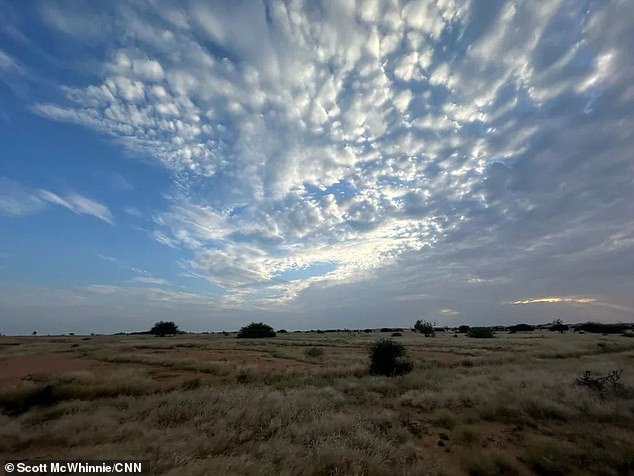
Ward said she spent her time in captivity ‘in the open, under acacia trees’
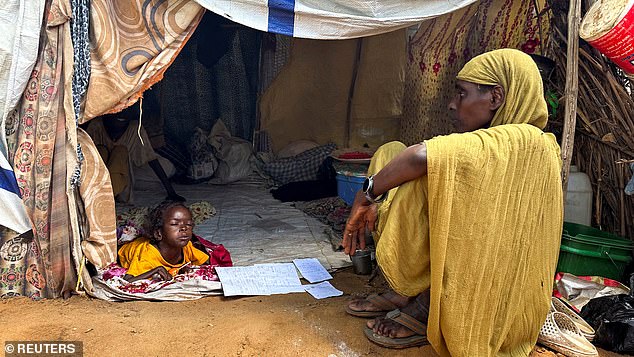
The UN estimates that 20,000 people have been killed and thousands injured since the conflict began. The war has also displaced more than 10 million people, including 2.4 million who fled to neighboring countries and other countries. A displaced Sudanese woman rests in a shelter in the Zamzam camp in North Darfur
“As the only woman, and without a private space to relieve myself, I limited my water and food intake,” Ward wrote of her time in militia custody.
“Sleep, when it came, was a mercy, a reprieve from the nagging feeling of panic about not knowing when I would be able to see my children again.”
Fortunately, after 48 hours, the general informed the CNN team that they would be released, with the general saying, “We thought you were spies, but now you can go home.”
“A wave of relief went through my body,” Ward said. “There were smiles and handshakes with our captors. We posed awkwardly for a photo at the edge of the mat that had been our makeshift prison.’
The crew was relieved when they were released, but they never reached Tawila, their original destination.
The war between the Sudanese army and the Rapid Support Forces broke out in the capital Khartoum in April 2023 and has spread throughout the country. There was particularly heavy fighting in Darfur.
The UN estimates that 20,000 people have been killed and thousands injured since the conflict began.
The war has also displaced more than 10 million people, including 2.4 million who fled to neighboring countries and other countries.
